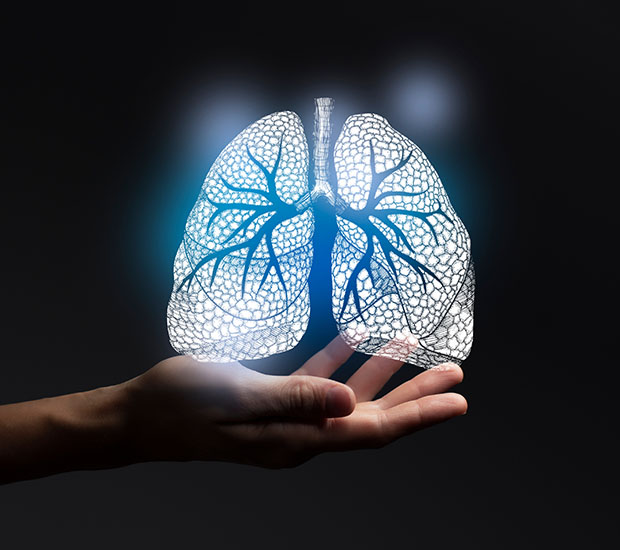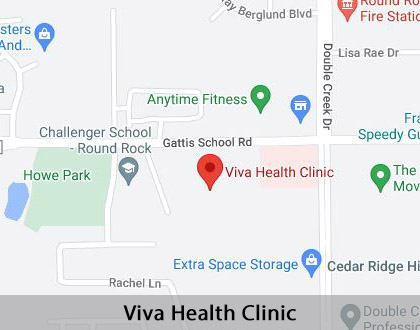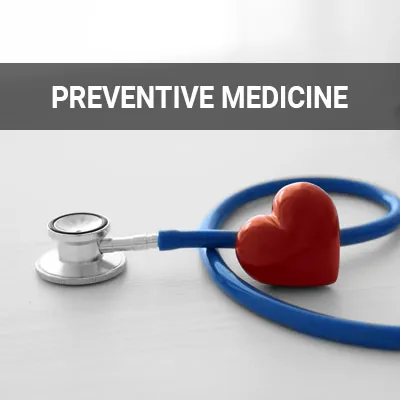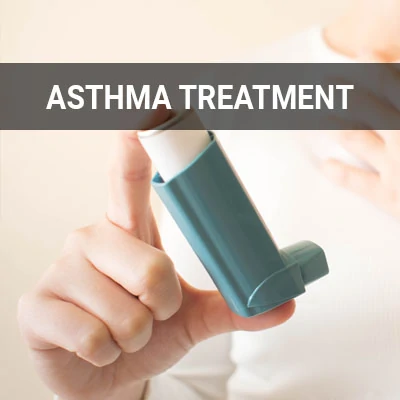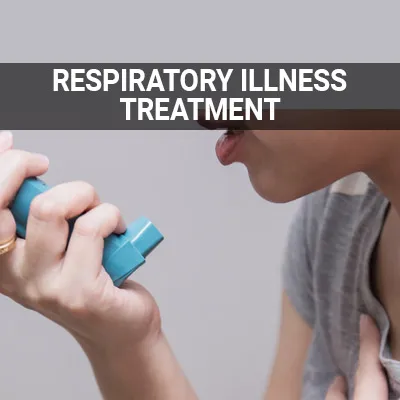Breathing and Respiratory Issues Round Rock, TX
Breathing and respiratory issues can affect everyday activities, from breathing to speaking and eating. Over-the-counter medications may provide temporary relief of symptoms but may also produce side effects. If you notice symptoms related to your chest, lungs, or breathing, see a primary care practitioner.
A primary care practitioner can diagnose the most prevalent breathing and respiratory diseases. Our team at Viva Health Clinic is here to help. Call us today at (512) 243-5872 to learn more about our services or schedule an appointment.
Respiratory Issues
Respiratory issues refer to conditions or symptoms that result from breathing problems and affect the respiratory tract. The most common respiratory conditions are asthma, Chronic Obstructive Pulmonary Disease (COPD), chronic bronchitis, emphysema, lung cancer, cystic fibrosis, and pneumonia. Asthma and COPD are the most prevalent respiratory issues, affecting 25 million and 14.7 million people, respectively.
Understanding the cause and specific symptoms of the respiratory issues can help with the diagnosis and treatment. This way, we can provide the proper treatment to a variety of untreated breathing problems. Other health conditions can also cause respiratory issues. A primary care practitioner can help mitigate these symptoms to improve a patient's overall health. They can also provide respiratory issue treatment by opening up the airways for better breathing.
“Asthma and COPD are the most prevalent respiratory issues, affecting 25 million and 14.7 million people, respectively.”
Causes of Respiratory Issues
People may be born with respiratory issues, acquire them during childhood, or develop them over time due to environmental changes. The leading causes of respiratory issues are allergies and asthma, often linked together or acquired simultaneously. Chronic breathing problems and allergies are long-term and affect the respiratory system as they block the airways and tighten the chest.
The nasal passage is a pathway for viruses and allergens to enter your lungs. Therefore, the nose and sinuses have a connection with many lung disorders. For example, sinus or nasal passage inflammation may trigger asthma attacks as the number one trigger for asthma is allergies. The American College of Allergy, Asthma, and Immunology found that more than 50 million Americans have allergies and 24 million American people have asthma, making respiratory issues one of the most prevalent health issues.
“The leading causes of respiratory issues are allergies and asthma, often linked together or acquired simultaneously.”
Symptoms of Respiratory Conditions
Respiratory issues often produce signs and symptoms aside from breathing difficulties. Symptoms of these conditions can blend or seem like symptoms of other health issues. Therefore, a thorough examination from a primary care practitioner is crucial to receiving the right respiratory issue treatment. Common symptoms of asthma, bronchitis, and pneumonia include:
- Difficulty breathing
- Difficulty sleeping due to breathing issues
- Pain when breathing or coughing
- Phlegm
- Regular chest pain
- Shortness of breath
While these are all possible asthma, bronchitis, and pneumonia symptoms, each condition can have varying degrees of severity and complications. After a thorough discussion regarding the patient's medical and family history, allergies, illnesses, past procedures, and current symptoms, we can conduct tests to identify the cause and recommend an effective treatment.
“…a thorough examination from a primary care practitioner is crucial to receiving the right respiratory issue treatment.”
Check out what others are saying about our primary care practitioner services on Yelp: Breathing and Respiratory Issues in Round Rock, TX
Respiratory Issues We Treat
It is important to note that treatment may be different for each patient. The age and health of the patient can affect the overall treatment process. A primary care practitioner provides patients with customized treatment plans. Some common breathing and respiratory conditions a primary care practitioner can treat include:
- Allergic reactions
- Asthma attacks
- Bronchitis
- Chest pain
- Pneumonia
- Upper and lower respiratory infections
Upper respiratory infections can include colds, cases of flu, laryngitis, and tonsillitis, while lower infections refer to bronchitis, pneumonia, and tuberculosis. It is key to receive treatment for infections early to prevent further damage to the lungs and airways. If the infection or condition is too severe, our primary care practitioner can provide patients with a referral for more intensive treatment.
“It is key to receive treatment for infections early to prevent further damage to the lungs and airways.”
Questions Answered on This Page
Q. What are respiratory issues?
Q. What are the most common causes of respiratory issues?
Q. What are the symptoms of respiratory conditions?
Q. What respiratory issues does a primary care practitioner treat?
Q. What are some treatments for breathing and respiratory issues?
People Also Ask
Treatments for Breathing and Respiratory Issues
During the treatment process, we will find the source of the respiratory issue, not only treat the symptoms for it. For instance, patients with asthma can receive tests, such as Read or a methacholine challenge for proper diagnosis and asthma classification. Once we determine the condition's severity, we will prescribe a specific medication for the patient. With the proper treatment, people with asthma can lead comfortable and healthy lives.
While cases of bronchitis progress over several weeks, some people may not be able to endure the symptoms or have certain roles that require extensive use of the throat. We can help to find a treatment that works for each patient's unique needs and preferences. While antibiotics will not work on viral infections, such as bronchitis, we may use antibiotics if the cause seems to be due to a bacterial infection. When treating pneumonia, we may recommend antibiotics but will need to review the severity of the symptoms first.
“With the proper treatment, people with asthma can lead comfortable and healthy lives.”
Frequently Asked Questions
Q. How can I prevent acquiring a respiratory issue from the environment?
A. It is important to take care of your airways and lungs, even if you do not have allergies or pre-existing conditions, to prevent life-threatening complications from developing. People can use an air purifier in their house, especially in their bedroom. Living in an area with low pollution, smoke, and smog can greatly lower your chances of developing a respiratory issue.
Q. What is Acute Respiratory Distress Syndrome (ARDS) and does it develop from untreated respiratory issues?
A. ARDS is an acute illness that results in moderate to severe loss of lung function. More people suffer from ARDS than breast cancer and AIDS every year. ARDS develops due to untreated pneumonia, sepsis (an overwhelming infection in the body), aspiration of fumes, food or stomach contents into the lung, and trauma. These conditions cause the body to manufacture substances that may cause inflammation in the lungs.
Q. What are the risks of untreated respiratory issues?
A. Many respiratory issues, including asthma and certain severe allergies, and frequent asthma attacks, can lead to respiratory failure. There is also an increased chance of developing cancer, increased mortality, more frequent asthma attacks, and increased incidences of lower respiratory infections.
Q. Who is more at risk for acquiring a respiratory issue?
A. Risk factors for chronic respiratory diseases include tobacco smoking (including second-hand smoke), air pollution, allergens, and occupational risks. Outdoor air pollution and indoor air pollution (often caused by cooking with solid fuels) are also common causes. In addition, those with respiratory issues in their family history are more likely to develop them over time.
Q. How can I help alleviate breathing issues at home?
A. Steam therapy, or steam inhalation, involves inhaling water vapor to open the airways and help the lungs drain mucus. Using a large pot, boil water, place your head over the pot once boiled, cover your head with a towel, and inhale the water through your nose and out through the mouth. Other ways include: controlled coughing, drain mucus from the lungs, exercise, green tea, anti-inflammatory foods, and chest percussion.
Start Feeling Better – Visit Us Today
By visiting us as soon as possible, our team can help get you the professional treatment you need. Instead of waiting around and allowing the symptoms to get worse, we can provide you with treatment options.
Definitions
Call Us Today
If you are experiencing breathing or respiratory issues, a primary care practitioner can provide you with the personalized treatment you need. Our team at Viva Health Clinic can help you improve the quality of your life. Call us today at 512-243-5872 to learn more about our services or schedule an appointment.
Helpful Related Links
- American College of Allergy, Asthma and Immunology. American College of Allergy, Asthma and Immunology. 2023
- American Journal of Medicine. American Journal of Medicine. 2023
- American Lung Association (ALA). American Lung Association (ALA). 2023
- American Medical Association (AMA). American Medical Association (AMA). 2023
- Asthma and Allergy Foundation of America. Asthma and Allergy Foundation of America. 2023
- CDC Respiratory Health Resources. CDC Respiratory Health Resources. 2023
About our business and website security
- Viva Health Clinic was established in 2023.
- We accept the following payment methods: American Express, Cash, Discover, MasterCard, and Visa
- We serve patients from the following counties: Williamson, Travis, McLennan
- We serve patients from the following cities: Pflugerville, Austin, Kyle, Waco, Leander, Cedar Park, Bastrop, Round Rock, Georgetown, Hutto, Liberty Hill, and Taylor
- National Provider Identifier Database (1104428416). View NPI Registry Information
- Norton Safe Web. View Details
- Trend Micro Site Safety Center. View Details
Back to top of Breathing and Respiratory Issues
